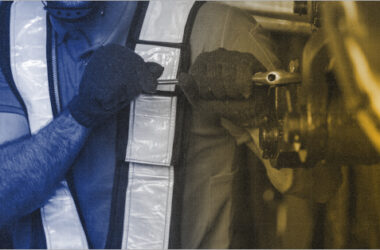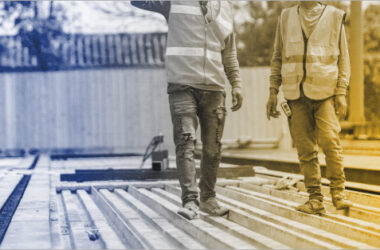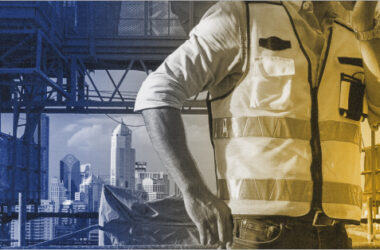Construction and infrastructure development are vital drivers of India’s economic growth. Heavy machinery and equipment are central to the smooth execution of construction projects. To safeguard these valuable assets from potential damage, theft or breakdowns, Contractors Plant and Machinery (CPM) Insurance provides essential coverage.
However, understanding the specific inclusions and exclusions in a CPM insurance policy is crucial for contractors and businesses to avoid unexpected financial losses. This blog explores what is covered and what is not covered under CPM insurance policies in India. By understanding these aspects, contractors can better manage their risks and ensure comprehensive protection for their machinery.
What is Contractors Plant and Machinery Insurance?
Contractors Plant & Machinery Insurance (CPM) is a specialised insurance policy designed to protect construction equipment and machinery from damage caused by unforeseen and sudden accidents. It covers both movable and immovable machinery used on construction sites, such as:
- Cranes
- Excavators
- Bulldozers
- Compressors
- Concrete mixers
- Road rollers
- Other heavy-duty construction equipment
CPM insurance provides financial protection against physical loss or damage to expensive machinery, helping contractors minimise disruptions to project timelines. This type of insurance is especially relevant for businesses engaged in construction, civil engineering and infrastructure projects where machinery plays a critical role.
What is Covered Under Contractors Plant and Machinery Insurance?
A CPM insurance policy provides extensive coverage against various risks that could lead to machinery damage. Below are the key inclusions:
1. Accidental Damage
CPM insurance covers accidental damage to insured machinery that occurs during the normal course of operations. For example:
- A crane collapsing due to mechanical failure.
- A bulldozer being damaged during excavation work.
The policy ensures that repair or replacement costs are covered so that projects do not face unnecessary delays.
2. Fire, Explosion, and Lightning
CPM insurance provides coverage for damage caused by fire, explosions, or lightning strikes. Examples include:
- An excavator catching fire due to an electrical short circuit.
- A lightning strike causing damage to a construction crane.
Such unexpected events can lead to significant financial losses, which the policy helps to mitigate.
3. Theft or Burglary (If Included in Policy Schedule)
Construction sites are vulnerable to theft and vandalism, as expensive machinery is often left unattended. If specified in the policy schedule, CPM insurance covers:
- Theft of entire machinery.
- Burglary where essential machine parts are stolen.
However, it is important to check whether theft coverage is included, as it is not automatically covered in standard CPM policies.
4. Natural Disasters
Machinery is often exposed to harsh environmental conditions at construction sites. CPM insurance covers damage due to natural disasters such as:
- Earthquakes
- Floods
- Storms
- Cyclones
- Landslides
This is particularly crucial for projects in high-risk areas prone to extreme weather conditions.
5. Malicious Damage
If machinery is intentionally damaged due to acts of vandalism or other malicious intent, CPM insurance provides coverage. This ensures that businesses are financially protected against deliberate acts of damage caused by third parties.
6. Temporary Repair Costs (Under Certain Conditions)
In some cases, temporary repairs may be necessary to keep the project running. CPM insurance covers temporary repair costs if:
- The repairs are part of the final repair process.
- The total repair costs do not exceed the amount covered under the policy.
This helps minimize downtime and maintain project timelines.
What is NOT Covered Under Contractors Plant and Machinery Insurance?
While CPM insurance provides broad coverage, there are certain exclusions that policyholders should be aware of to prevent claim disputes. Here are the key exclusions:
1. Mechanical or Electrical Breakdown (Unless Causing External Damage)
Damage caused by internal mechanical or electrical failure is not covered, unless:
- The failure leads to an external accident causing physical damage to the machinery.
For example, if an excavator’s engine fails due to poor maintenance, the policy will not cover it. However, if the failure causes the machine to overturn and sustain external damage, only the consequential damage is covered.
2. Damage During Transit
CPM insurance does not cover damage sustained while machinery is in transit from one location to another. Contractors should purchase separate transit insurance if they require protection for equipment being transported between sites.
3. Wear and Tear
Normal wear and tear due to prolonged usage is excluded. This includes:
- Gradual deterioration of parts.
- Damage caused by corrosion or rust.
- Routine maintenance expenses.
Regular maintenance is the responsibility of the contractor and is not covered by CPM insurance.
4. Wilful Negligence or Misuse
If machinery is damaged due to operator negligence or improper use, the policy will not cover the cost. For example:
- Operating the machine in unsafe conditions.
- Overloading machinery beyond its capacity.
Contractors must ensure that trained personnel operate machinery as per manufacturer guidelines.
5. Pre-existing Defects
If machinery has existing damage or defects before purchasing CPM insurance, these are not covered under the policy. The policy is designed to cover only new and operational machinery at the time of policy issuance.
6. Damage Due to War, Nuclear Risks, and Terrorism (Unless Opted for)
Standard CPM insurance excludes loss or damage caused by:
- War, rebellion, or civil unrest.
- Nuclear radiation or radioactive contamination.
- Acts of terrorism (unless terrorism coverage is specifically included).
If terrorism coverage is needed, contractors must request its inclusion in the policy.
7. Damage to Underground Machinery (Except for Tunneling Equipment)
CPM insurance excludes damage to plant and machinery working underground, except in cases where the machinery is specifically used for tunneling projects.
8. Operational Losses and Downtime
The policy does not cover loss of productivity, profit, or business interruption due to machinery breakdown. It only covers the cost of repairs or replacements for physical damage.
How to Make a Claim Under Contractors Plant and Machinery Insurance?
Making a claim under CPM insurance involves several key steps:
1. Immediate Notification
- Inform your insurance provider immediately after the damage occurs.
- Provide details such as policy number, date, time and nature of the incident.
2. Prevent Further Damage
- Take reasonable steps to prevent additional damage to the machinery.
- Do not attempt repairs before an insurance inspection is conducted.
3. Submit a Claim with Necessary Documents
- Fill out a claim form and provide supporting documents, such as:
- Policy document
- Proof of ownership
- Incident report
- Photos/videos of the damage
- Repair estimates
- FIR (if theft or vandalism is involved)
4. Surveyor Inspection and Claim Settlement
- The insurer will appoint a surveyor to assess the damage.
- If the claim is approved, compensation is provided based on policy terms.
The Bottomline:
Contractors Plant and Machinery Insurance is essential for protecting valuable construction equipment from unforeseen risks. While it covers accidental damage, natural disasters and fire, exclusions like mechanical breakdown, transit damage, and wear and tear must be noted.
By understanding the inclusions and exclusions, contractors can make informed decisions to safeguard their assets and ensure smooth project execution. Always review policy details carefully to ensure comprehensive coverage for your business needs.








